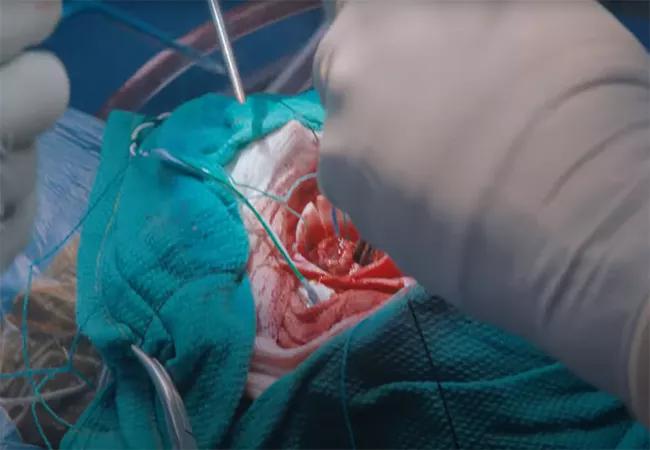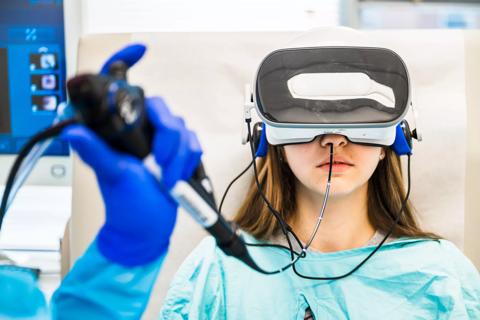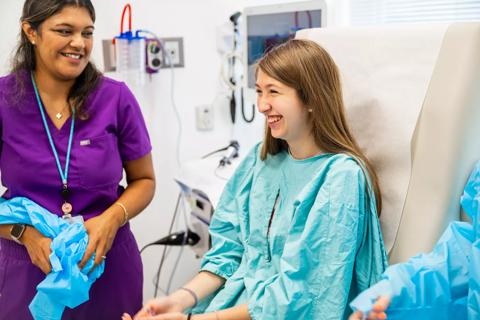Cleveland Clinic authors contribute to large epilespy surgery study

Drug-resistant epilepsy (DRE) is often a devastating disease when it begins in infancy.
Cleveland Clinic is a non-profit academic medical center. Advertising on our site helps support our mission. We do not endorse non-Cleveland Clinic products or services. Policy
While some infants are surgical candidates for brain surgery, which can be a life-altering intervention, most are not referred to a specialized center in time. This is due to a myriad of reasons, including lack of education about options, access, fear of brain surgery, and fruitless anti-seizure poly-therapy trials.
A delay in treatment often leads to epileptic encephalopathy with loss of critical developmental window in an infant’s development. The authors of a new study, published in Epilepsia, set out to review the safety and efficacy of “ultra-early” epilepsy surgery. Ajay Gupta, MD, Section Head of Pediatric Epilepsy at Cleveland Clinic Children’s, is a coauthor on this study.
In this multicenter and multinational collaboration, the authors demonstrated safety and efficacy of epilepsy surgery in the youngest children, infants < 3 months of age. The study shows that epilepsy surgery was not only the most effective treatment leading to seizure remission in 66% of the infants with DRE but also it was safe in the hands of experienced surgeons and dedicated centers with no death or major unexpected long-term morbidity.
Cleveland Clinic’s Pediatric Epilepsy program contributed one of the largest cohorts in this paper as a result of the highly specialized, experienced and collaborative care across pediatric epilepsy, neurosurgery, intensive care, anesthesia, and pediatric subspecialty consultation teams that are critical to good outcomes in this sick and vulnerable patient population.
Reference
Roth J, Constantini S, Ekstein M, Weiner HL, Tripathi M, Chandra PS, Cossu M, Rizzi M, Bollo RJ, Machado HR, Santos MV, Keating RF, Oluigbo CO, Rutka JT, Drake JM, Jallo GI, Shimony N, Treiber JM, Consales A, Mangano FT, Wisoff JH, Teresa Hidalgo E, Bingaman WE, Gupta A, Erdemir G, Sundar SJ, Benifla M, Shapira V, Lam SK, Fallah A, Maniquis CAB, Tisdall M, Chari A, Cinalli G, Blount JP, Dorfmüller G, Christine Bulteau, Uliel-Sibony S. Epilepsy surgery in infants up to 3 months of age: Safety, feasibility, and outcomes: A multicenter, multinational study. Epilepsia. 2021 Aug;62(8):1897-1906. doi: 10.1111/epi.16959. Epub 2021 Jun 14. PMID: 34128544.

IBAT inhibitors, elastography and more

Programs bring age- and size-appropriate technology to children

Unpacking advancements and identifying drivers of inequity

Self-efficacy mindset, burst therapy and increased biofeedback may help improve outcomes

Pediatric and adult gastroenterologists offer team care for patients with eosinophilic esophagitis

New guidelines expand on psychosocial, sexual health, cognitive and other issues

Consensus conference begins work on new recommendations for clinical care and research

Systemic change needed to improve health outcomes for parents and children, say researchers